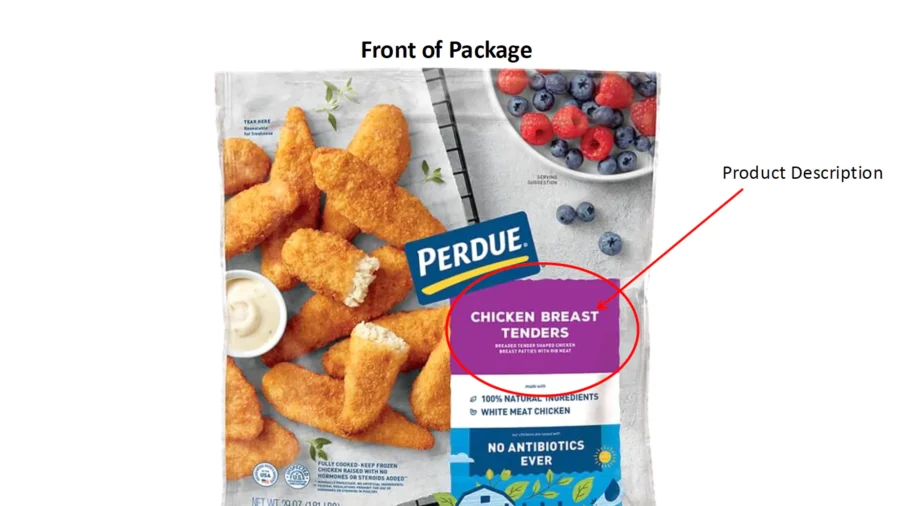Georgia-based Perdue Foods is recalling large quantities of chicken products after consumers complained about contamination, according to the Food Safety and Inspection Service (FSIS).
The recall is applicable to roughly 167,171 pounds of frozen, ready-to-eat chicken breast nuggets and tenders that are potentially contaminated with metals, according to an FSIS announcement on Aug. 16.
“The problem was discovered after the firm received consumer complaints about metal wire embedded in the product and notified FSIS of the issue,” the agency stated.
“There have been no confirmed reports of adverse reactions due to consumption of these products. Anyone concerned about an injury or illness should contact a healthcare provider.”
The products being recalled are 22-oz. Perdue Simply Smart Organics Breaded Chicken Breast Nuggets, 29-oz. Perdue Chicken Breast Tenders, and 22-oz. Butcherbox Organic Chicken Breast Nuggets.
All three products have a “Best if Used By” date of March 23, 2025, mentioned on the back of the package.
The items were produced on March 23 and with the establishment number “P-33944.” They were shipped to retail outlets nationwide and also sold online.
FSIS said it was concerned that some of these items may have already been bought by customers and urged them not to consume it. The agency advised customers to throw away the items or return them to the place of purchase.
Individuals with questions about the recall can get in touch with Perdue consumer care at 1-866-866-3703.
The recall is among many food product recalls recent months over concern of the presence of metals. In late July, Colonna Brothers of North Bergen, New Jersey, voluntarily recalled its cinnamon products amid concerns about an elevated presence of lead.
Earlier in April, H-E-B Grocery Company recalled 3-ounce cups of Creamy Creations ice cream for potential metal presence.
Metal Contamination
Heavy metal contamination in food can have serious consequences for people’s health. The Food and Drug Administration (FDA) specifically warns about four heavy metals—arsenic, lead, mercury, and cadmium.
The agency prioritizes dealing with these four “due to their potential to cause harm during times of active brain development—in the womb through early childhood.”
For instance, exposure to high levels of arsenic among children whose brains are in the developmental phase is linked to adverse neurological effects like lower IQ, behavior difficulties, and learning disabilities. Unborn children and infants are “particularly vulnerable” due to their small body sizes and faster metabolism.
Similarly, exposure to high levels of methylmercury during brain development can result in memory issues and decreased intelligence.
The presence of these metals is now prevalent in food, according to various studies.
A 2021 analysis by nonprofit Consumer Reports looked at 126 herbs and spices sold in the United States, and found that 40 of these items—roughly a third—had “high enough levels of arsenic, lead, and cadmium combined, on average, to pose a health concern for children when regularly consumed in typical serving sizes.”
Another report from 2023 by the nonprofit found high heavy metal presence in food items consumed by babies. The group tested 14 products eaten by infants, ranging from fruits and vegetables, meals, snacks, bars, and puffs. The study found that the overall risk of heavy metal contamination “hasn’t changed much” since a previous study done in 2018.
Chocolates can also be contaminated by heavy metals. A July 31 study found that some popular dark chocolates contained concerning levels of these contaminants, especially cadmium and lead. The study was conducted by researchers from the George Washington University School of Medicine and Health Sciences and ConsumerLab.com.
From The Epoch Times

